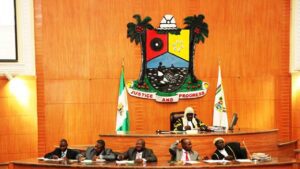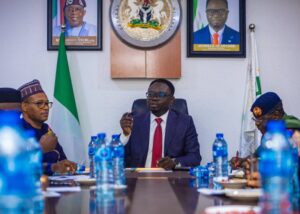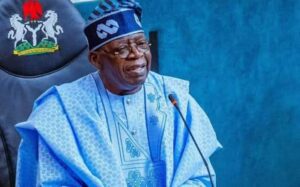
INEC calls for collaborative efforts in fighting misinformation, disinformation
The Independent National Electoral Commission (INEC), on Saturday called for collaborative effort from critical stakeholders in fighting what it called spectre of misinformation and disinformation ahead of the 2023 general elections.
Mr Festus Okoye, National Commissioner for Information and Voter Education, INEC, made the call in Abuja, at a one-day INEC, Media/CSO interface on Identifying and Mitigating Flashpoints of Electoral Misinformation and Disinformation.
The News Agency of Nigeria (NAN) reports that the interface was organised by the International Press Centre (IPC), and funded by the European Union, under Component 4: Support to the media of the EU support to Democratic Governance in Nigeria-Phase 2 (EU-SDGN II) project.
Okoye said that while the country continues to prepare for the 2023 general election, the commission would rely on the support of all stakeholders and friends of Nigeria to overcome the identified challenges.
He noted that resort to misinformation and disinformation would not help in the growth and sustenance of the electoral and democratic process.
“All the critical stakeholders must rise and fight the spectre of misinformation and disinformation.
“It is important to verify information before sharing. The Commission believes that the antidote to fake news is greater openness and transparency.
“While the commission remains true to its commitment to openness and transparency, the media and all the critical stakeholders must resist deliberate falsehood aimed at de-legitimising the commission and the electoral process,” he said.
Earlier in his opening remarks, Mr Lanre Arogundade, Executive Director, IPC, said that the interface was holding within the context of the need to make appropriate strategic response to the twin-menace so that the worst of information disorder does not envelope the electoral landscape.
Arogundade noted that INEC, agreeing to the idea of the interface, showed that there was a mutual concern about the damaging effect of disinformation and misinformation.
“Although, the INEC Commissioner for Information and Voter Education, Mr. Festus Okoye, whose presence here today we deeply appreciate, will still speak in detail on flashpoints of electoral disinformation and misinformation, let me venture to say that if unchecked, it could lead to lack of trust in the electoral process and unwelcome disruptions.
“For us in the media, it is also a straight forward case that we cannot effectively perform the function of providing citizens with the information they need to make informed choices at elections, if the same citizens are confused about what to believe and what not to believe.
“The media task in the above regard is further complicated by the penchant of the politicians to tell blatant lies to score cheap political points.
“Against this background, the expected result 5 of Component 4: Support to Media of the European Union Support to Democratic Governance in Nigeria (EU-SDGNII) is that ‘Media professional capacity to deal with electoral misinformation and disinformation is strengthened’.
“The specific objective of the component is to ensure that, ‘The Media, including New and Social Media’, provide fair, accurate, ethical and inclusive coverage of the Electoral Process,” he said.
Arogundade said that the interface, therefore, is one of the important steps being taken by the IPC, as the lead partner of component 4 towards the attainment of the result.
He added that the matters arising from the interface would also contribute to the design of appropriate fact-checking tools and messages through short videos, hackathons and other ICE materials on combating fake news in the electoral process.
“It is our expectation that this interface will lead to the development of collaborative strategies by the media, the CSOs and INEC on curbing electoral disinformation and misinformation,” he further said.
Meanwhile, in his remarks, Prof. Jibrin Ibrahim, Chairman of the occasion and Senior Fellow, Centre for Democracy and Development (CDD), said “today we live in what is called the post-truth world.”
Ibrahim explained that the post-truth world is a world where the information system had become so corrupt and infiltrated by falsehood.
He therefore said that the interface was apt and very important as three key players, the electoral management body, the media and the Civil Society converged.
According to him, “we have to map a way forward out of the dangers that lie ahead of a new world characterised by abundance of fake news, dangerous speech, manipulation of information, leading to misinformation and disinformation.
“And this in very profound way threatens democracy. For democracy to work, the opinion people make must be fact based, truthful and reflect what is going on.”



